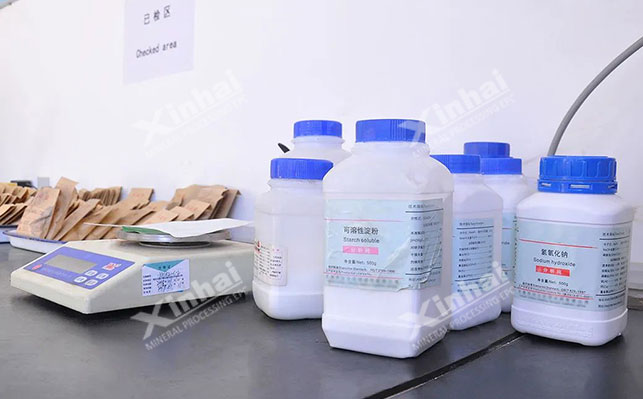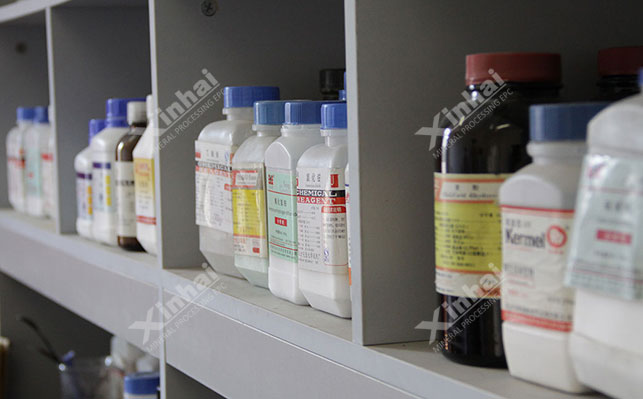
15311826613
Click to add WeChatZinc is one of the important mineral resources for my country's industrial development. It has large mineral reserves and many types, and is often symbiotic with copper or lead. In addition, the flotation method or Combined mineral processing method with other methods to complete. When lead oxide ore is flotated, the selection and use of reagents is very important. Commonly used mineral processing reagents are mainly collectors and regulators. This article focuses on the types and characteristics of lead oxide mineral flotation regulators.
Adjusters can improve the selectivity of the flotation process, strengthen the role of collectors and minerals, improve the conditions of the slurry, and have an important impact on the flotation of zinc oxide. According to the different functions of each agent, it is divided into pH adjusters, activators, inhibitors, flocculants, dispersants and foaming agents.

Generally sodium hydroxide, sodium carbonate, sodium sulfide, in amine Sodium sulfide is often used in French medicine, and its effects are multifaceted.
Common vulcanizing agents are used to sulfurize the surface of zinc oxide minerals, represented by Na2S and NaHS.
When dodecylamine is used as the collector for rhombusite flotation, five organic chelating agents are salicylaldehyde oxime, a-benzoin oxime, anthranilic acid, 8-hydroxyquinoline and ethylenediamine. Also a good activator.
There are many types. The main purpose of using activators is to enhance the adsorption capacity of the collector on the surface of zinc oxide mineral particles. During flotation, the four inorganic salts, ammonium chloride, ammonium nitrate, ammonium sulfate and ammonium bicarbonate, can promote the flotation of smithsonite.

Quartz, dolomite, calcite, iron oxide clay and hydrogen Iron oxide constitutes the main gangue mineral of zinc oxide ore, and these impurity minerals seriously affect zinc oxide ore resources. Inhibitors such as sodium hexametaphosphate, water glass, sodium humate, starch glue, and methylcellulose can be used to prevent limonite and smithsonite from floating together. During zinc oxide flotation, BD2 and sodium hexametaphosphate are used as inhibitors, which have strong selectivity in roughing operations. It can not only inhibit gangue minerals such as limonite, calcite and quartz, but also improve zinc oxide The flotation rate of minerals.
Before the flotation operation, the gangue or target minerals are selectively flocculated to form larger particles for precipitation and separation, and then the collector is added Flooding out useful minerals is what flocculants do. Use the highly efficient selective flocculant KN for fine mud, and then perform sulfide-amine flotation on the flocculated and settled concentrate to obtain better zinc concentrate.
The main components of the foaming agent are a variety of alcohols, such as the new compound foaming agent-No. 4 oil, which is a brown oily liquid with good fluidity and no special irritating smell.
The above are the types of mineral processing chemicals commonly used in zinc oxide mineral processing plants. In actual mineral processing, the selection and dosage of chemicals require It depends on the flotation process plan. Therefore, the editor recommends that you first conduct a mineral processing test analysis to customize the appropriate type of mineral processing reagents and the amount of mineral processing reagents. dosage to obtain the ideal zinc concentrate grade.